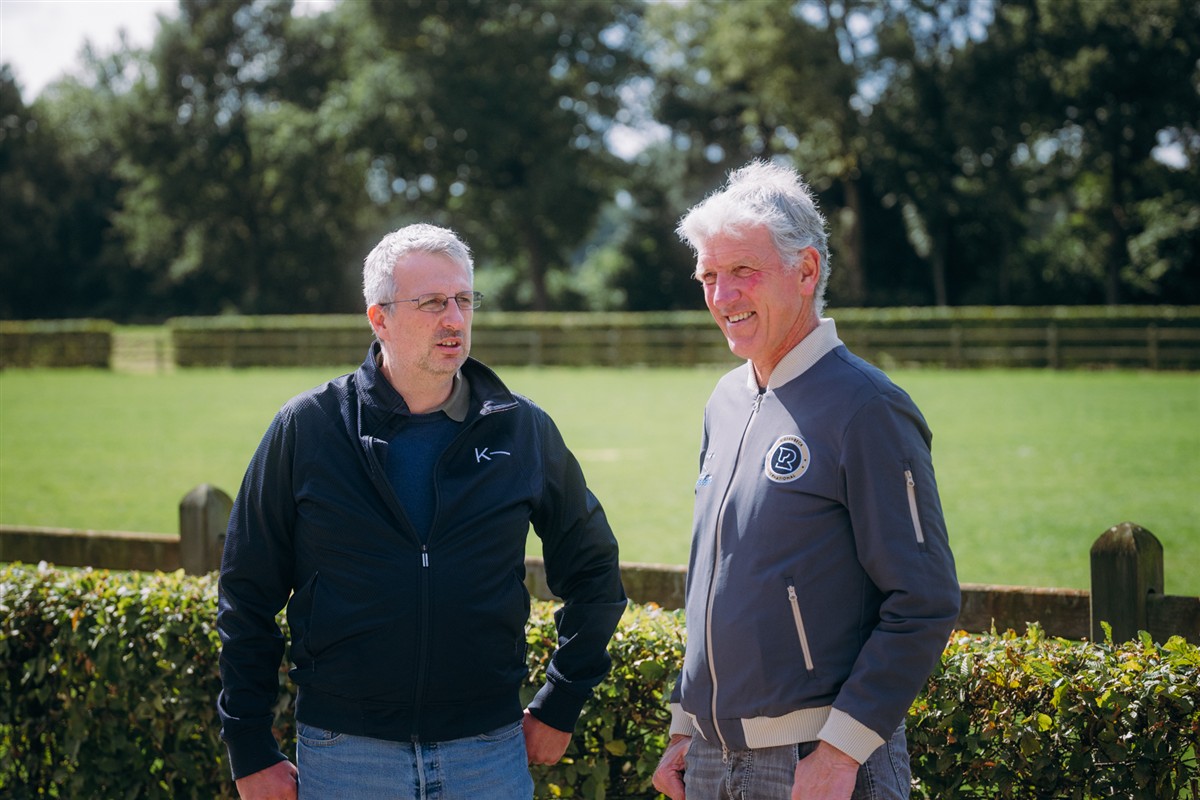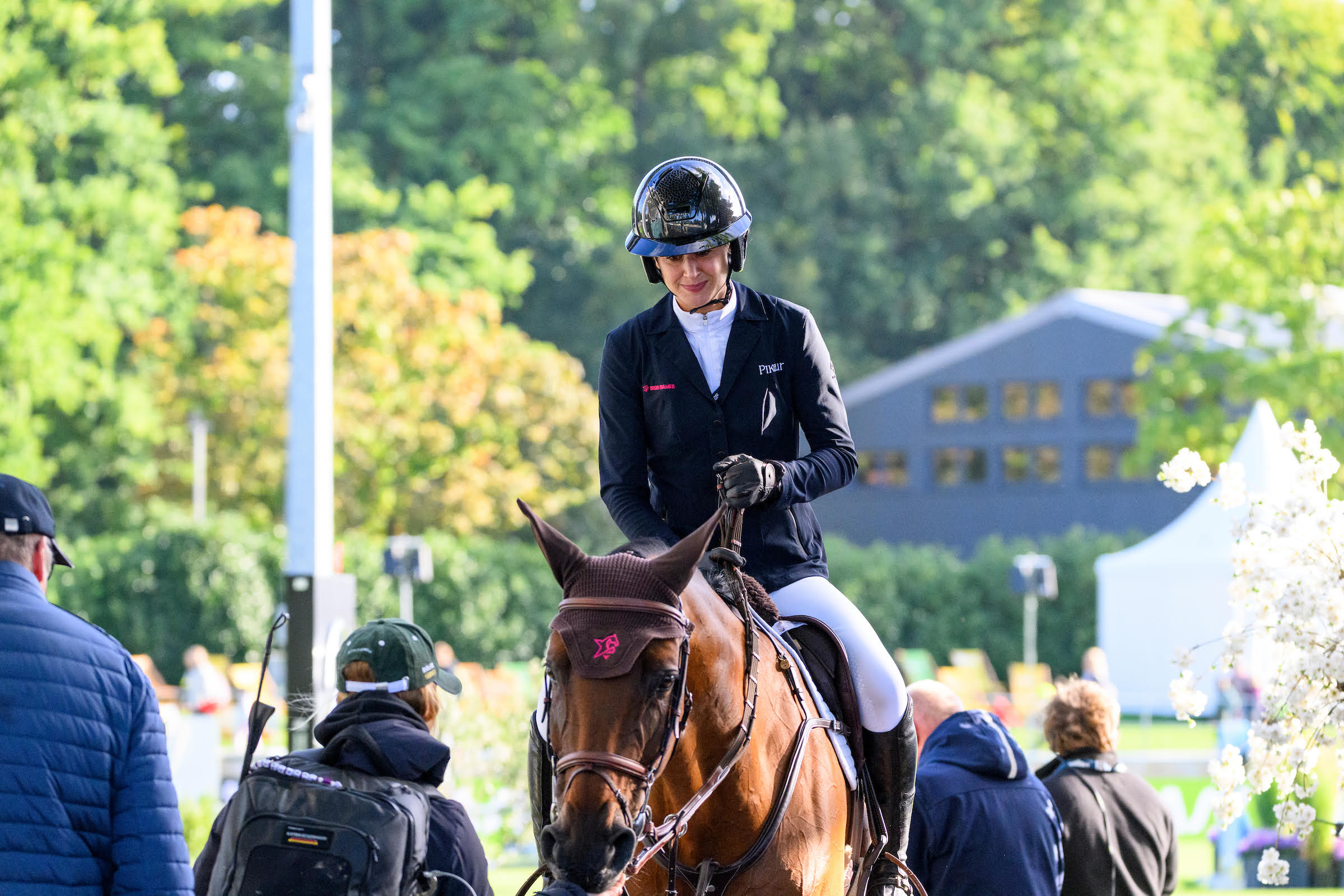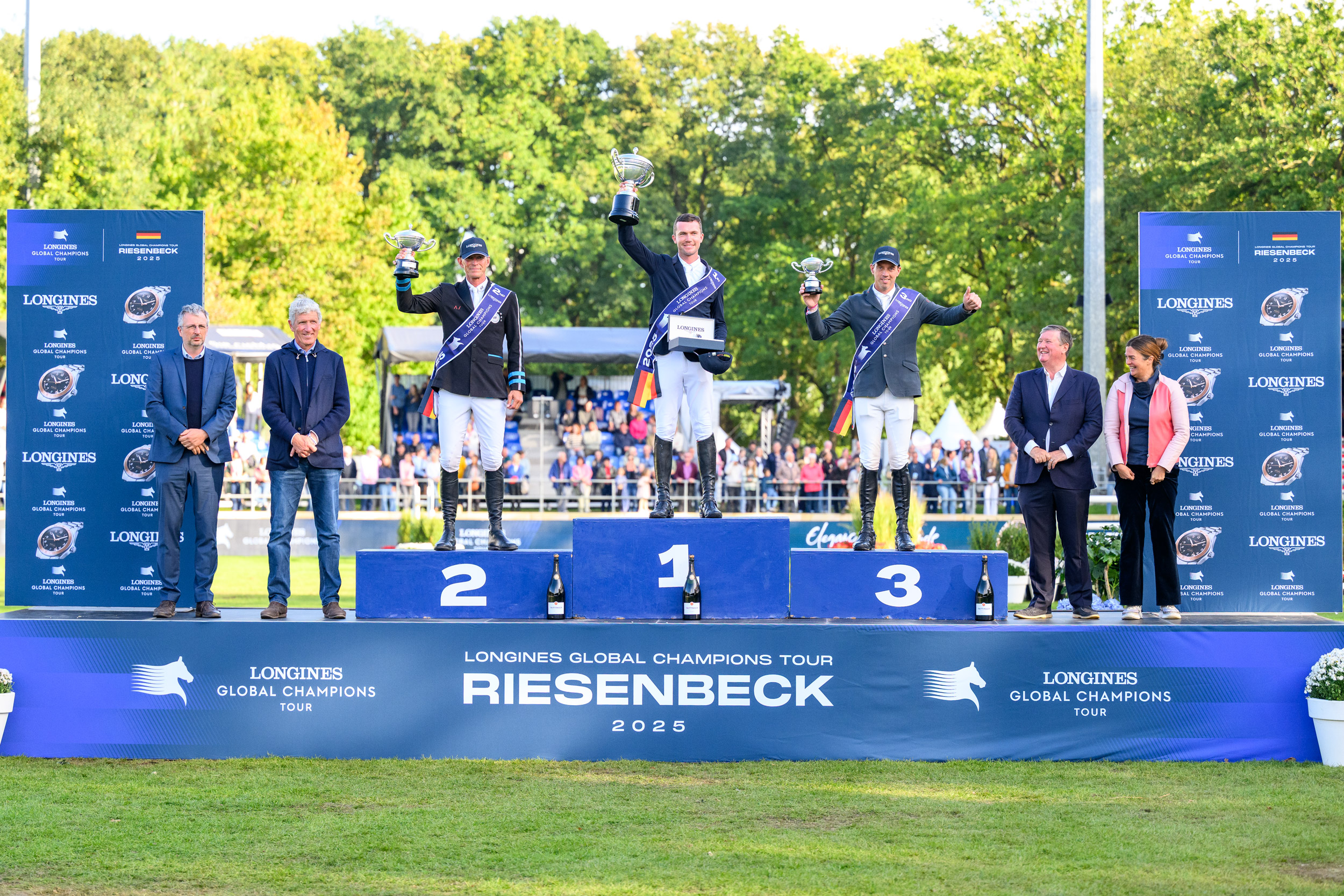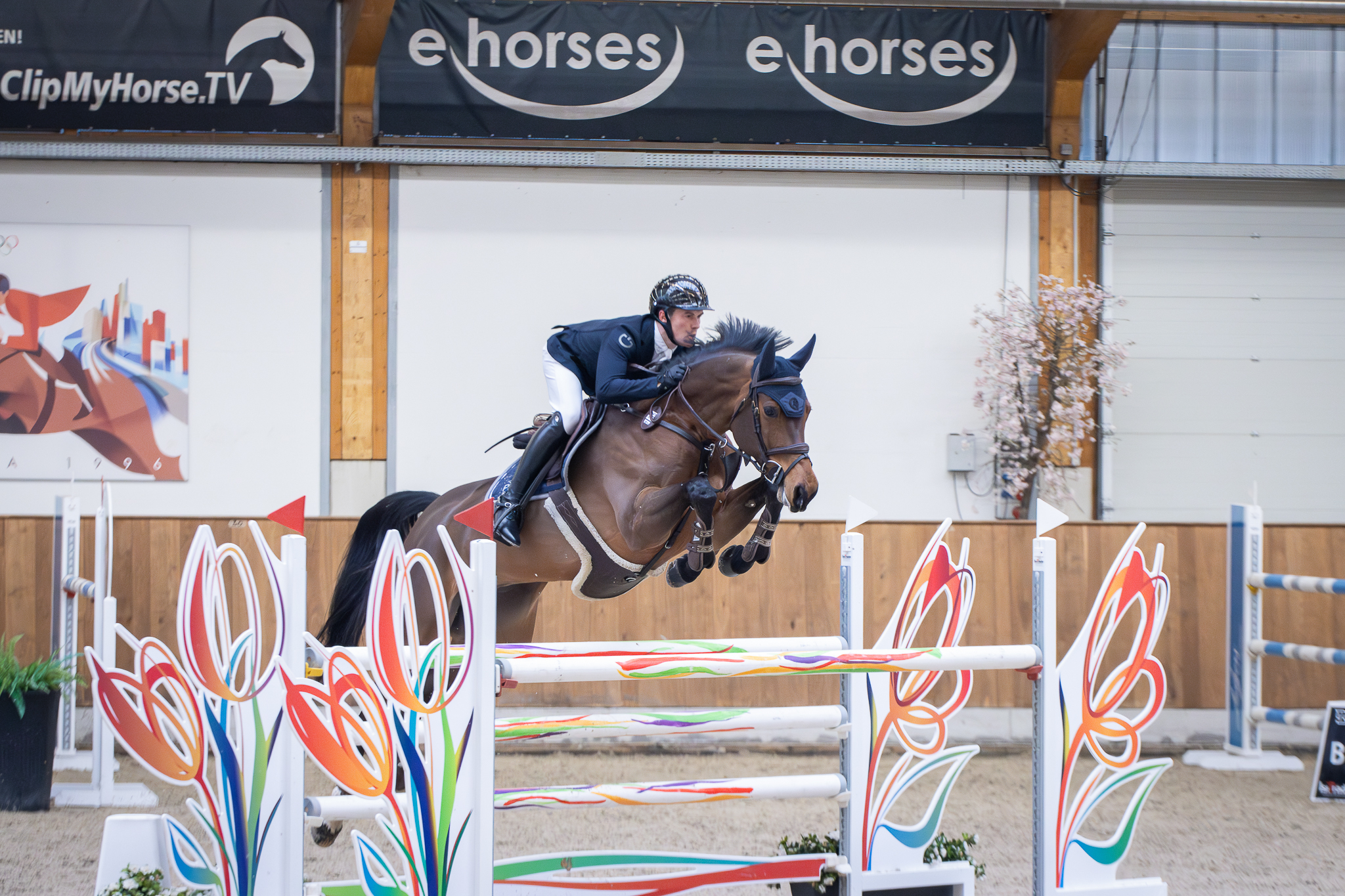Organizing tournaments is one of several pillars
With the expansion of the equestrian center at Surenburg with a modern indoor riding arena complex in 2015, builders Ludger Beerbaum and Constantin Freiherr Heereman laid the foundation for the future of equestrian sports in Riesenbeck.
Since 2016, Riesenbeck International GmbH has been organizing tournaments and training events at this center throughout the year, continuing the long tradition of major events organized by the Riesenbeck Breeding, Riding, and Driving Club.
Host Ludger Beerbaum and the managing director of Riesenbeck International, Karsten Lütteken, look back on ten years of existence on the occasion of this year's Global Champions Tour stage and venture a look into the future.
They celebrated the opening of the large indoor riding arena ten years ago with an international tournament in which Olympic champions such as Jeroen Dubbeldam and Steve Guerdat took part. Were there any thoughts, plans, or hopes at the time that a globally recognized equestrian center could be created here?
Ludger Beerbaum: No. That was not the primary goal. Of course, we also did it to hold events, but the original idea of building a large hall was more influenced by the fact that we needed more space for training. Then we said, let's kill two birds with one stone. We didn't need such a large hall just for training; we also wanted to hold events. But hosting such large international tournaments was not the initial plan. The organization of the European Show Jumping Championships shortly afterwards came about and was not really planned. And the fact that two Olympic champions were guests has to do with their friendship with me...
Karsten Lütteken: There were more hopes and ideas than concrete plans for how the equestrian center should develop. But of course it was our wish to welcome riders of this caliber here in Riesenbeck.
What construction work has been done in the meantime?
Is that why the good riders come to Riesenbeck?
Karsten Lütteken: The construction of the stables for the 2021 European Championships is certainly outstanding. This has clearly given Riesenbeck a unique position in the international tournament circuit and, since then, has enabled it to inspire many equestrians, riders, and grooms at numerous events and convince them to come to Riesenbeck on a regular basis.
In addition, over the years we have modernized the grass stadium a little and also completely rebuilt two large sand arenas, which means we are well equipped all year round.
Ludger Beerbaum: The construction measures alone, essentially the 350 permanent stalls, are not the primary reason why many good riders come regularly. I believe that it is fundamentally the range of tournaments and competitions on offer that attracts the riders. One example is the Longines Global Champions Tour. The fact that we host this series means that we automatically have a dozen or more top riders here. I think it's a mix of everything. The tournaments we organize, of course – word has gotten around – and the conditions, which are very good. And the fact that there is an infrastructure with permanent stalls and large windows is certainly not detrimental. It's a bit of everything: the tournaments, the range of competitions, even the normal working tournaments, the late entries – it's a great opportunity for the professionals to get their horses up to speed. Of course, they prefer to do that in good conditions. It's a bit of everything.
How important are these facilities and the many activities that take place there for the second pillar of the business, horse trading?
Ludger Beerbaum: It's not unimportant. Not so much in terms of the word “trade” in horses. But more in terms of the fact that it gives us the opportunity to scout a lot of horses and see them. Hundreds of horses come here throughout the year. Many of them are not for sale, but we get to see a lot of them. That's the first thing. But that doesn't necessarily result in trade. That comes later. It's also nice for us that all the young horses don't have to be transported around, but can be presented here and gain competition experience.
What does a normal annual program at Riesenbeck International look like now?
Karsten Lütteken: We have now settled into a routine of hosting around ten international two-star tournaments on weekends. These are primarily aimed at professional athletes and the international show jumping scene. All spectators are welcome at any time and admission is always free. But these are not actually large spectator events. We reserve that for one or two major events per year. For the next three years, the Longines Global Champions Tour will certainly be the key event here.
These days, it is not easy for equestrian events to organize large tournaments that are at least financially viable. The costs are high, and finding sponsors is becoming increasingly difficult. Television coverage is being reduced to Aachen and Hamburg. How is Riesenbeck dealing with this problem?
Karsten Lütteken: We recognize this problem and have always been aware of it since we started organizing tournaments, which is why we don't see ourselves as just a tournament organizer in the sense of an event organizer. We see ourselves much more as a platform for equestrian sports, both internally, where equestrian sports can network and do business, trade, driving the economic factor, so to speak, simply to strengthen it further, as well as being part of the tournament landscape with the outstanding Beerbaum Stables, and we intend to give something back to other athletes and continue to organize tournaments at the highest level.
Ludger Beerbaum: We are in a perhaps unique situation, and that is an advantage for us over other organizers. If we only organized tournaments, we would have the same problem as the others. But because organizing tournaments is one of four or five pillars, and each one lives a little off the others, we can compensate for this quite well. In addition to organizing tournaments, we also train students, scout for horses, and offer horses for sale. In the overall concept of the “horse industry,” this is perhaps a little easier for us to bear than, for example, the fact that there is less television coverage and that the big sponsors are not exactly knocking down our door. We can weigh things differently. And that's why it works for us.





